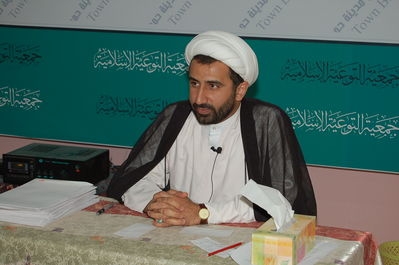In January 2016, Bahraini authorities issued an administrative decision revoking Sheikh Mohammed Khojasta’s citizenship. On February 21, authorities deported him from the country. They charged him with committing illegal acts, including “defaming the image of the state, inciting against the state, and defaming brotherly countries.” Responding to his deportation, al-Wefaq, Bahrain’s largest political opposition group, stated, “Revocation of citizenships is used as a tool to punish activists, democracy and rights advocates in Bahrain.”
This is not the first time Bahrain has deported its citizens and revoked their citizenship. Sheikh Khojasta was among 71 other Bahrainis whose citizenship the government revoked that same month. Americans for Democracy & Human Rights in Bahrain (ADHRB) has also previously documented the Bahraini government’s arbitrary exiling of Shia leaders, among them Sheikh Hussein Najati. Since August 2014, Bahrain has revoked the citizenship of 260 Bahrainis. This practice violates Articles 9 and 15 of the Universal Declaration of Human Rights, which prohibit arbitrary arrest, detention, or exile, and the revocation of an individual’s nationality. It also contravenes Article 12 of the International Covenant on Civil and Political Rights (ICCPR), which states that no one shall be arbitrarily deprived of the right to enter his own country. ADHRB has found that the Government of Bahrain frequently revokes Bahrainis’ citizenship by utilizing the vague language of the anti-terror law to suppress dissidents and activists.
Tyler Pry is an Advocacy Intern at Americans for Democracy & Human Rights in Bahrain
Photo courtesy of al-Wefaq





